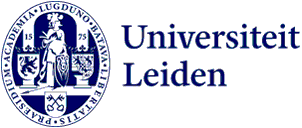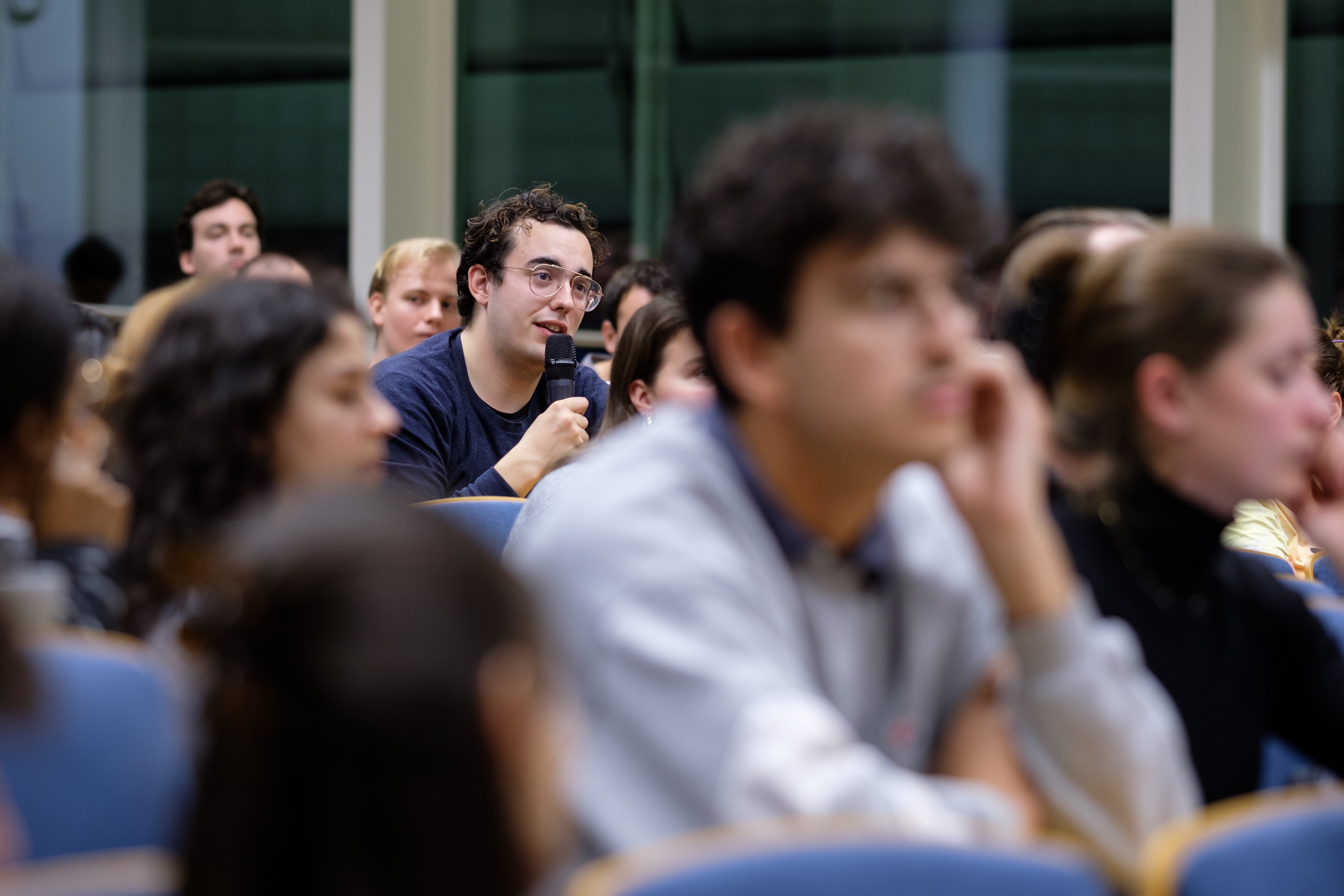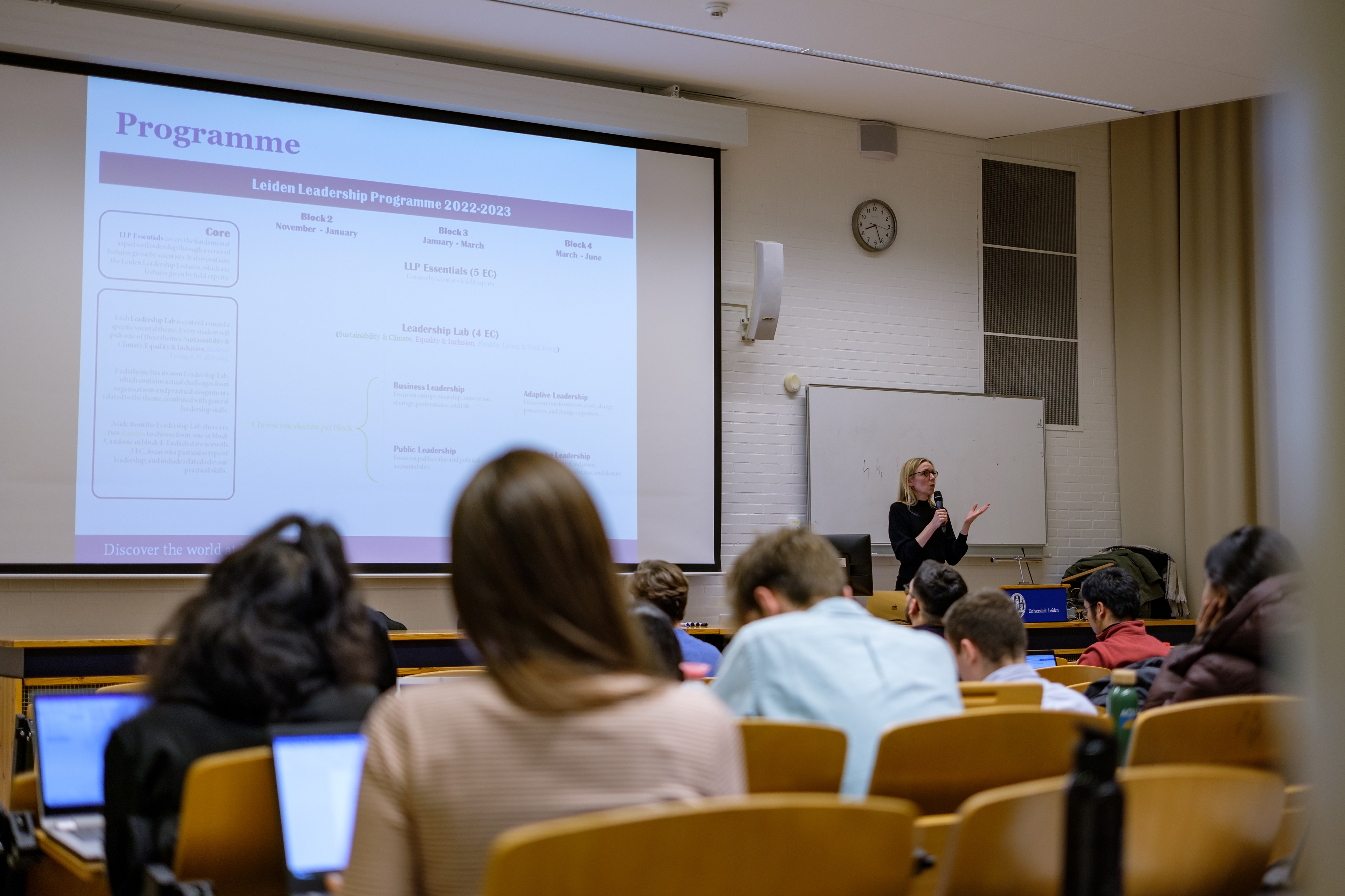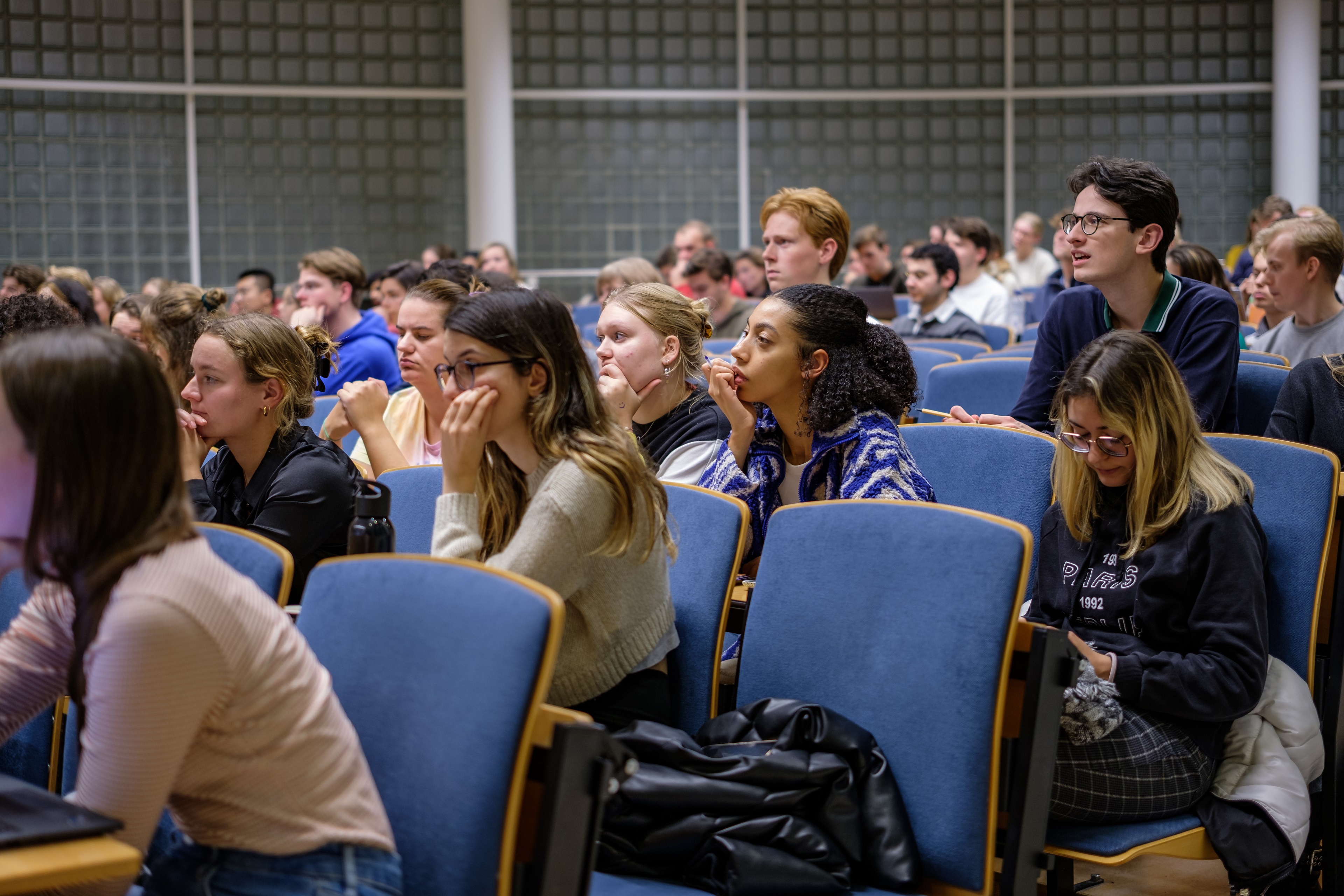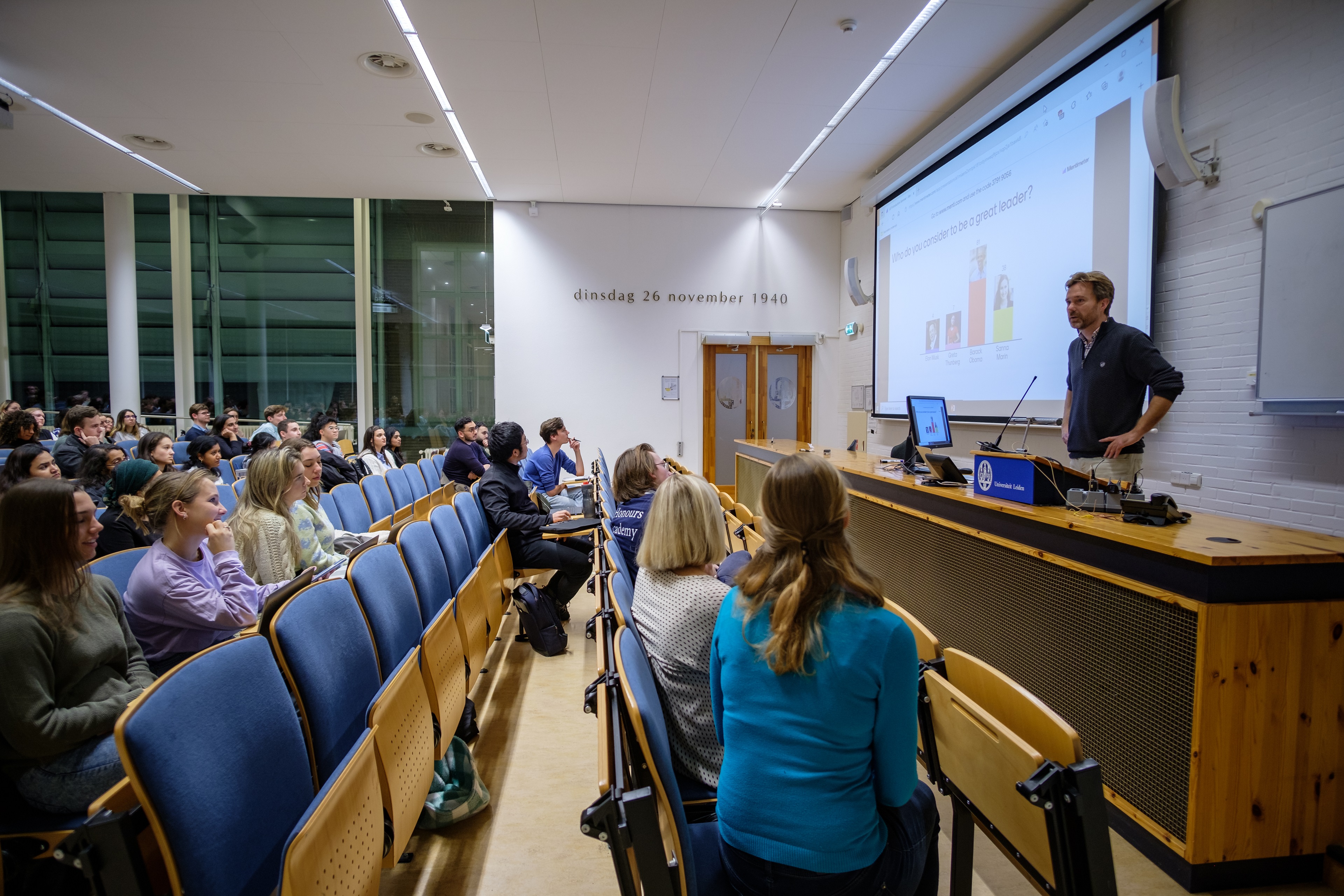
Renewed LLP has started: 'Reflection is the beginning of progress'
'Working on your leadership starts tonight,' says lecturer Sandra Groeneveld at the introductory meeting of the Leiden Leadership Programme. The programme has been renewed this year, and students are ready to dive into it: 'I hope to get to know myself.'
In the Cleveringazaal of the Kamerlingh Onnes Building, 150 Dutch and international master's students from Leiden University, TU Delft and Erasmus University Rotterdam, selected to attend this year's extracurricular Leiden Leadership Programme, are seated. After a brief introduction, LLP lecturer Ben Kuipers asks the students via Mentimeter how they view leadership.
Shared mic
The first question is who sees themselves as leaders, followers or both. Students pass the microphone from one side to the other to explain their answers. One student says: 'In every situation, I can have a different role; it depends on the context and also on the expertise you have.'
What are characteristics of good leadership? Everyone types in one word, which produces a colourful web of words on the projector. Integrity is projected the largest. In addition, vision, responsibility, reliability, inspiration, charisma, empathy and listener are also important in the students' view. After all, leadership, indicates one student, is not just about you: leadership is bigger than yourself.
Expectations of leaders
Rush (29), master's student in Political Philosophy, sees it the same way. She is excited to follow the LLP now because she thinks leadership has changed post-pandamic: 'There has undoubtedly been a paradigm shift of what people expect from a leader. I want to learn about that.' Besides this social motive, she has a personal goal: 'I would like to meet new people here, preferably people who are the opposite of the introverted nerdy student I am.'
Ben Kuipers explains that leadership is approached in different ways in the academic literature: as a personality trait, as behaviour, as a relationship, as a process and as perception, among others. Different leadership theories, each with their own perspective, are discussed in the lectures and the Leiden Leadership Lab. For instance, 'Leadership as a personality trait' focuses on what makes someone a leader, while 'leadership as a relationship' focuses on the interaction between leaders and followers, because without followership there is no leadership.
Science and society
More interdisciplinary scientific content is part of the new programme. Sandra Groeneveld explains how this series of lectures, called LLP Essentials, cognitively challenges students. The sessions cover, for example, gender and leadership, leadership in the past and public leadership. Lecturers come from different faculties and a guest lecture by Lieutenant General Elanor Boekholt-O'Sullivan of the Ministry of Defence is also on the programme.

Also new to the programme are more electives, Leadership Labs and skills trainings. In the Labs, students work in groups on a social case study of a partner organisation. In addition, there are training sessions. All participants take the general skills training courses, while specific skills are trained as part of the Electives, of which students can choose the parts that fit their personal goals.
The first impression
Sietske (23), master in Management at Erasmus University, is looking forward to the interesting lectures and team projects. 'I am ambitious, and that requires knowing yourself well. I can hopefully learn that at the LLP. I already got a bit of information about leadership tonight, but would have liked to dive straight in.'
Dayant (25), masters in International Relations, would also have liked to go into depth at this point. Nonetheless, he already learned quite a bit. 'What I take away is that reflection is broad. Sandra Groeneveld told me that reflection is the beginning of progress, which inspired me to participate in the LLP. Reflection is already starting now by setting myself goals for next year.'
Text: Femke van de Griendt
Photos: Eric van den Bandt
